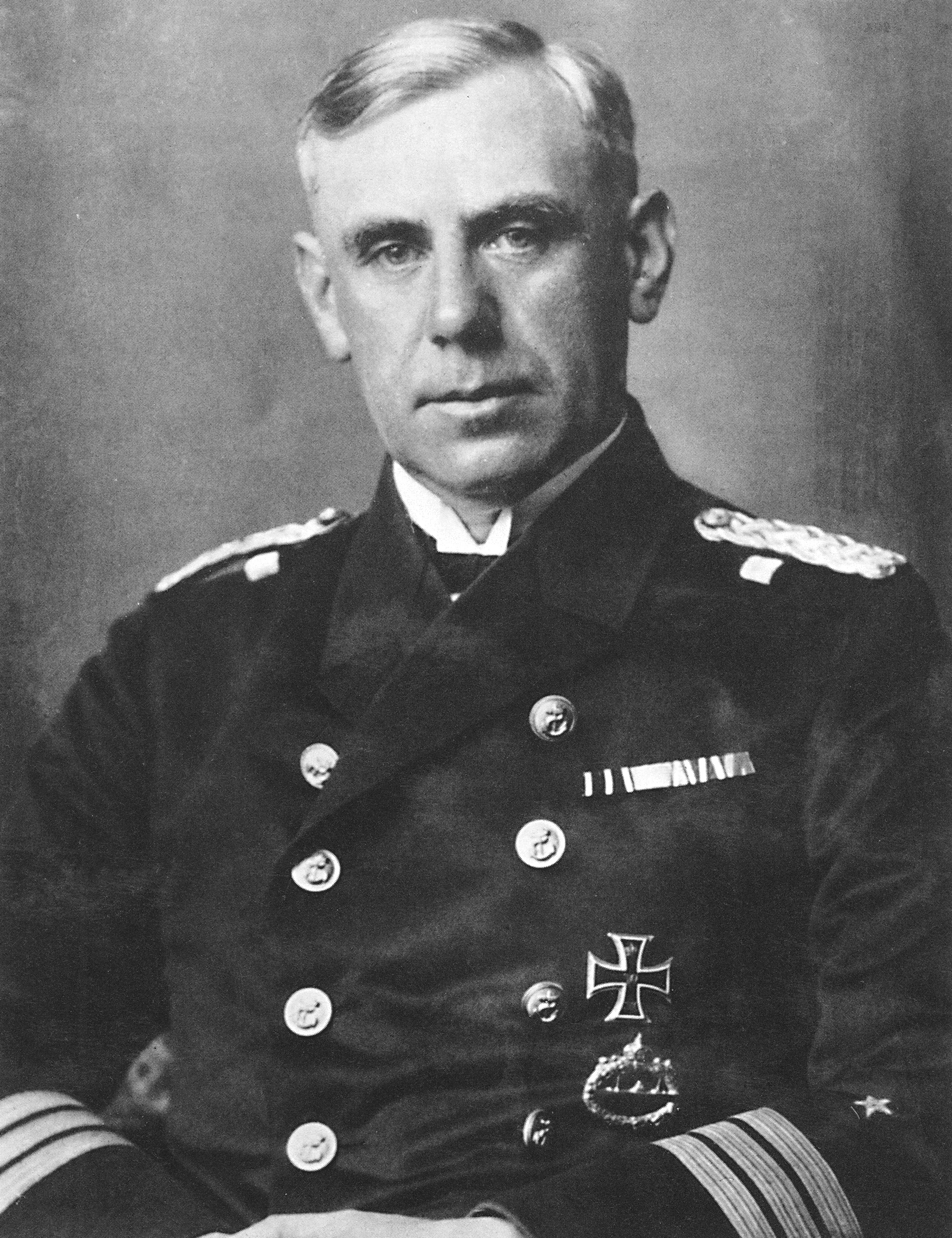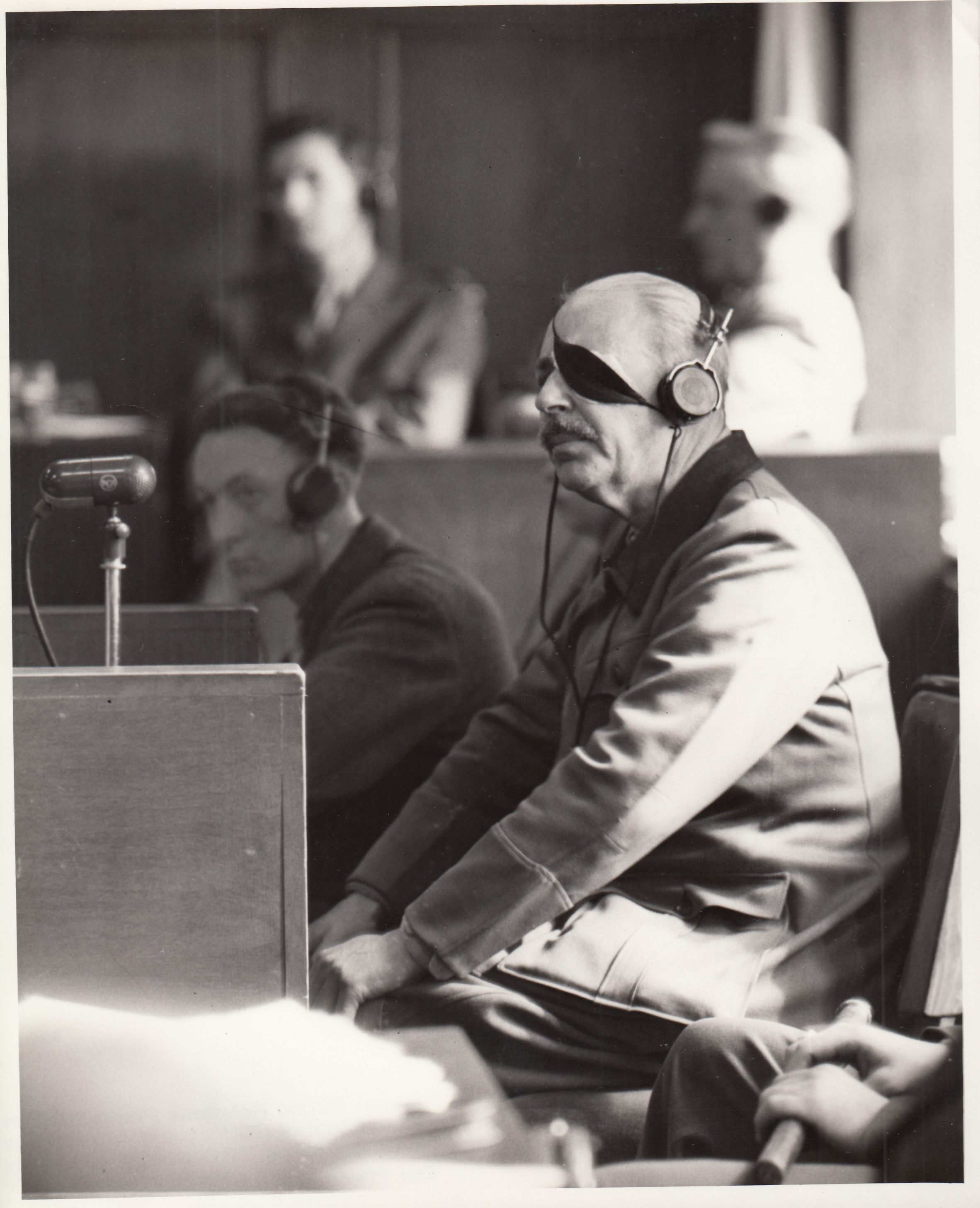Berlin, 15 Sept 1941
Amt Ausl/Abw. -Nr. 9731/41 geh. Chef Ausl.
F XIV, E 1.
Secret
To be submitted to the Chief of OKW
Notes of Speech
SUBJECT : Directives for the treatment of Soviet Prisoners of War.
REFERENCE: 2 f 24.11 AWA / Kriegsgef. (I) Nr. 3058/41
secret
To be submitted to the Chief of AWA I.
I. 1. The legal position is as follows:
The Geneva Convention for the treatment of Prisoners of war is not ["not" is underlined in purple pencil] binding in the relationship between Germany and the USSR, therefore only the principles of general international taw on the treatment of pris-
411
EC-338
oners of war apply. Since the 18th century these have gradually been established along the lines that war captivity is neither revenge nor punishment, but solely protective custody [Sicherheitschaft] the only purpose of which is to prevent the prisoners of war from a further participation in the war. This principle was developed in accordance with the view held by all armies that it is contrary to military tradition to kill or injure helpless people; this is also in the interest of all belligerents in order to prevent mistreatment of their own soldiers in case of capture.
2. The decrees for the treatment of Soviet Prisoners of Wai enclosed as supplement No. 1 are based on a fundamentally different view point, as is shown in the opening phrases. According to this view point military service for the Soviets is not considered military duty but, because of the murders committed by the Russians, is characterized in its totality as a crime. Hence the validity of international legal standards in wartime is denied in the war against Bolshevism. Furthermore much is set aside which, according to previous experience has proved itself not only as militarily useful but was also considered absolutely essential for the maintenance of discipline and efficiency of the own troops.
3. The instructions are very general. But if one considers their basic principles the expressly approved measures will result in arbitrary mistreatments and killings, the formal prohibition of arbitrary actions notwithstanding.
a. This results in the first place from the instructions about the use of arms in cases of insubordination. The guards and their superior officers who are entirely unacquainted with the languages of the prisoners of war will frequently not be able to determine whether non-compliance with orders is caused by misunderstanding of disobedience. The principle: "Use of arms against Soviet prisoners of war is as a rule justified" exempts the guards of any obligation for deliberation.
b. The treatment of the prisoners of war is removed to a large extent from the supervision of the Wehrmacht; to outward appearance, however, the responsibility will remain with the Wehrmacht.
aa. The screening of the civilians and politically undesirable prisoners of war as well as the decision over their fate is effected by the action [purple pencil note "very efficient!"] of detachments of the Security Police [Sicherheits Polizei] [underlined in purple] and the SD along principles which are unknown to the
412
EC-338
Wehrmacht authorities and the compliance with which they cannot check.
bb. The establishment of a camp police equipped with clubs, whips and similar tools is contrary to military conception, even though the policing is done by camp inmates; furthermore, the Wehrmacht authorities are thus handing over means of punishment to unknown persons without being able to really check on their use.
c. The final phrase of the decree suggests that the commanders of the prisoners of war camps act even more severely than the decrees provide for, in order to be sure not to be held responsible themselves.
4. According to general experience, unfair treatment provokes the spirit of insubordination, so that the guarding of these prisoners of war in all probability will always remain difficult. The instructions already provide for the employment of one guard for each 10 prisoners during work so that with the present number of approximately 1.5 millions of employable prisoners a minimum of 150,000 men is required for guard duty.
5. Enclosure No. 2 is a translation of the Russian decree for prisoners of war which complies with the principles of the International Law and to a very large extent also the Geneva Convention for the treatment of prisoners of war. This decree will no doubt be disregarded by the Russian troops at the front but both the Russian as well as the German decree, are mostly for home consumption. Although it can hardly be assumed that the Russian decree will be adhered to in the Russian territory of the Soviet Union, there is the danger that the German decrees will be seized upon by the enemy propaganda and will be compared with the Russian decrees.
6. The reconstruction of the occupied territories, so essential for the German War Economy, will be handicapped. It will be made impossible for these prisoners of war who, because of their anti-Bolshevistic attitude or because of some special training or , for other reasons could be used for the administration of these territories, to work for us after their release even though they might be inclined to do so after their experiences in the prisoners of war camps. Instead of taking advantage of the tensions among the population of the occupied territories for the benefit of the German administration, the mobilization of all international opposition forces of Russia for unified hostility will be facilitated.
693260—46—27
413
EC-338
7. Under the special conditions prevailing in the Russian theatre of operation, the will to resist of the enemy troops will be extremely strengthened by the enemy intelligence service and the very rapidly effective whispering campaign.
8. Possible sources of information will be blocked; prisoners of war who, as internal political opponents of the Bolshevistic regime, especially those belonging to minorities, could be used for counter-intelligence purposes will lose all willingness they may have to be enrolled. This applies especially to the nationalities of the territory of the Caucasus which is so decisive for the war economy.
9. It will be impossible to protest against the bad treatment of German soldiers in Soviet Russian captivity, [purple pencil note: I consider it useless!]
II. Office Ausl/Abw. (Foreign Counter-Intelligence) has not been consulted before issuance of these decrees of the order for their execution. For fundamental reasons as well as for the detrimental results certainly to be expected with regard to political and military matters, the office Ausl./Abw. has had considerable misgivings about them.
Signed: Canaris
2 Enclosures
[The following notations appear on first page:
Ink and pencil pencil Blue pencil Brown pencil
Red stamp Purple pencil
Indelible ink
Blue pencil pencil Blue pencil
Indelible pencil:
vol 222-2
338
v. P 23 Nov.
submit to chief, office of Foreign Intelligence Berkner (?) 25 Sept.
Secret
K 23 Sept. The Objections arise from the military concept of chivalrous warfare! This is the destruction of an ideology! Therefore I approve and back the measures K.
-2- chief foreign and chief intelligence III C. (illegible initials) 1 Oct.
(initials) 29 Sept.
(initials) 22 Nov.
(initials IV 20 Oct. back tp staff la 20 Nov. (initials) VI
la [illegible letters] .
414
Supreme Command of the Armed Forces
Az. 2f 2i-.ll General Armed Forces Dept. /P.W. (I)
No. 3058/41 Secret 2 Enclosures
Berlin-Schoeneberg, 8 Sept 1941 Badenschestrasse 51
Secret
SUBJECT: Regulation for the treatment of Soviet prisoners of war.
Reference: 1. OKW/P.W. 26/41 Most Secret dated 16 Jan 1941 (only for the P:W. commandants in Service Command I and the General Government.
2. OKW/P.W. 2144/41 Secret dated 26 June 1941.
3. OKW/P.W. 2401/41 Secret dated 17 July 1941.
4. OKW/P.W. 15 No. 5015/41 dated 2 Aug. 1941. Appended is a collection of and/or additions to the orders already issued in various directives on the treatment of Soviet prisoners of war. The directives, already issued by OKH/Gen. Qu. for the operational areas, have been considered. By this order, any orders on this subject become invalid so long as no direct reference is made to them in the appendix.
Distribution:
Supreme Command army/gen. staff army/gen.
Hq. .... 10
Reich air force minister and C-i-C of air force .... 2
Supreme Command Navy .... 2
Armed Forces C-i-C Norway .... 2
Service Commands I-XIII, XVII, XVIII, XX,
XXI, also for branches 6 each .... 102
Military Commander Government General and
PW Commander . .... 25
-PW Commander service command I .... 15
Armed Forces Commander Baltic territories Riga, and PW Commander with armed forces commander Baltic territories at present Riga .... 20
Armed Forces commander Ukraine, Powne, and PW Commander with armed forces Commander Ukraine, at present Berditschen .... 20
Air district hq. II,XI,XII .... 3
Naval station North Sea, Wilhelmshaven .... 1
Naval station Baltic, Kiel .... 1
carry over 203
EC-338
[red stamp and blue ink] to No. 9731/41 secret foreign
carry over 203
for information:
Reich Labor Ministry, attention Councillor Dr.
Hoelk .... 1
Reich Leader SS and Chief of German Police,
Berlin SW .... 11
Reich Labor Service —. 10
Supreme Command Armed Forces /staff/ hq. .... 2
Supreme Command Armed Forces JAG .... 2
Supreme Command Armed Forces Armed
Forces Propaganda .... 2
Supreme Command Armed Forces foreign
office/counter intelligence/foreign .... 2
Supreme Command Armed Forces Foreign office/counter intelligence/counter intelligence I .... 2
Supreme Command Armed Forces Foreign office/counter intelligence/counter intelligence II .... 2
Supreme Command Armed Forces/Foreign office/counter intelligence/counter intelligence III .... 2
Supreme Command Armed Forces general armed forces office/inspect./PW .... 1
Supreme Command Armed Forces PW .... 4
Supreme Command Armed Forces reserve .... 20
Supreme Command Armed Forces draft .... 1
255
Chief of Supreme Command Armed Forces by order:
REINECKE -[The balance of this enclosure appears in Document Number 1519-PS. The second enclosure is a translation from Russian into German of a Russian decree pertaining to treatment of German PW's.]
Search the archive
Analysis and criticisms of a decree on the treatment of Soviet POWs, a distribution letter for the regulations, and comments on the criticisms
Authors
Wilhelm Canaris (admiral; High Command of the Armed Forces)
Wilhelm Canaris
German admiral, head of military intelligence service

- Born: 1877-01-01 1887-01-01 (Aplerbeck)
- Died: 1945-04-09 (Flossenbürg concentration camp)
- Country of citizenship: Germany
- Occupation: intelligence officer; naval officer; resistance fighter; submariner
- Participant in: 20 July plot
- Military rank: admiral
- Military branch: German Navy; Imperial German Navy
- Educated at: Naval Academy at Mürwik; Q1499438
Hermann Reinecke (infantry general; army command staff; honorary judge, People's Court)
Hermann Reinecke
German general (1888-1973)

- Born: 1888-02-14 (Lutherstadt Wittenberg)
- Died: 1973-10-10 (Hamburg)
- Country of citizenship: Germany
- Occupation: judge; military officer; politician
- Member of political party: Nazi Party
- Participant in: Judges' Trial (date: 1947-04-29; role: affiant)
- Military rank: General of the Infantry
- Military branch: infantry
Date: 15 September 1941
Literal Title: [second page:] Notes of Speech[.] Subject: Directives for the treatment of Soviet Prisoners of War.
Defendant: Wilhelm Keitel
Total Pages: 5
Language of Text: English
Source of Text: Nazi conspiracy and aggression (Office of United States Chief of Counsel for Prosecution of Axis Criminality. Washington, D.C. : U.S. Government Printing Office, 1946.)
Evidence Code: EC-338
Citation: IMT (page 2396)
HLSL Item No.: 452057
Notes:The first page has the annotations (apparently including Keitel's endorsing the decree) on Canaris's analysis; Canaris's text, pages 2-3; Reinecke's distribution letter, pages 4-5. The regulations are not included here, but a note at the end indicates they are in document PS 1519. A copy of EC 338 was introduced as USSR exhibit 356.